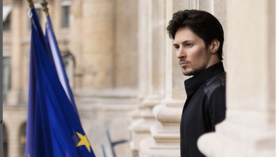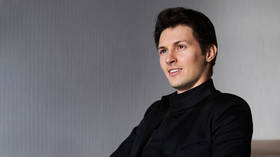Durov’s arrest beyond EU law – TASS source

The arrest of Telegram CEO Pavel Durov by French prosecutors was beyond the authority of the EU’s Digital Services Act (DSA), which regulates online platforms and social media, TASS has reported. The agency cited a source in the bloc’s legal system, who noted that the legislation does not provide for personal or criminal liability.
The Russian tech entrepreneur – who is also a citizen of France, the UAE, and St. Kitts and Nevis – was detained upon landing at Paris-Le Bourget Airport on Saturday. He is reportedly being accused of failing to curb criminal activities on his platform.
Durov’s arrest is “fully in line with the spirit and the principles” of the DSA, which stipulates that service providers are responsible for the content shared on their platforms, a source told TASS.
“If the operator wants to avoid penalties, it must automatically take down content banned by the European regulator,” they added.
However, the DSA “does not contain personal or criminal liability, which means that the prosecution in France went much further,” the expert noted. The EU regulation provides for the liability of the operator only as a legal entity, and penalties “are purely economic in nature,” they said.
“Durov’s case repeats the [Julian] Assange precedent. In both cases, a blow has been dealt to the founder of a large independent media resource using criminal charges,” the source told the agency.
They added that Durov’s legal team would face “additional difficulties,” since the allegations against him could be tied to the issue of French national security, and that it would be harder to arrange a public campaign to support him, given his Russian origin.
Durov left Russia in the mid-2010s over a disagreement with the government and has since mostly lived in the UAE. In 2021, he acquired French and Emirati citizenship.
He insisted that it was his “principled position” to keep user data private, and that he “would rather be free than take orders from anyone.” In an interview with American journalist Tucker Carlson in April, Durov said he had faced pressure from the US government to install a surveillance “backdoor” in Telegram, which he refused to do.
Telegram issued a statement on Sunday, saying its content-moderation policies were “within industry standards.”
Multiple public figures in Russia and abroad have condemned Durov’s arrest, describing it as an attack on freedom of speech and the free flow of information. Russian Foreign Ministry spokeswoman Maria Zakharova said Moscow had sent an official note to Paris with a demand for consular access to Telegram’s founder.












